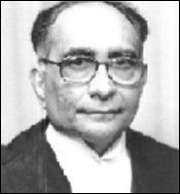It has been already decided in a 1945 judgement (given below) that same gotra marriages are legal.
The case of 'Madhavrao vs Raghavendrarao'
The case in question was 'Madhavrao vs Raghavendrarao', which involved a Deshastha Brahmin couple.
The two-judge bench included Harilal Kania, the first chief justice of independent India, and P B Gajendragadkar, who became the chief justice of India in the 1960’s.
KHAP PANCHES IN A VILLAGE, HARYANA
Following a series of hearings on evidence to prove a custom, the bench came to the conclusion that a matrimonial alliance between a man and woman belonging to same gotra was valid.
The court clarified that there was a need for the society to modify the tradition of denouncing such marriages to keep up with the changing times. It said, "Courts have to construe the texts of Hindu law in the light of the explanations given by recognized commentators. But it must always be remembered that since the said commentaries were written, several centuries have passed by and during this long period the Hindu mode of life has not remained still or static.
“Notions of good social behavior and the general ideology of the Hindu society have been changing. The custom as to marriages between persons of the same gotra in this case is an eloquent instance in point."
The tyranny in the name of honor
The legal heads feel there is a need to educate people about same gotra marriages and clear the misconception of those who staunchly oppose them.
The concept of same gotra marriages is so deeply ingrained in the minds of the communities that they thoughtlessly oppose such alliances and do not hesitate to kill the offenders ruthlessly or socially ostracize them in the name of honor.
Support of politicians
In a bid to woo the Jat community, which is at the centre of the ongoing gotra controversy, Naveen Jindal, the U.S.-educated Congress youth leader and Om Prakash Chautala, the president of the Indian National Lok Dal (INLD) are openly lending support to the self-styled khap panchayats .
Chautala stressed that his party was against violence and wanted those guilty for killings to be brought under law. Nevertheless, he expressed solidarity with the panchayats demanding a ban on same gotra marriages.
He stated, "My party is in favor of an amendment to the Hindu Marriage Act for incorporating a clause into it banning intra-gotra marriages.”


